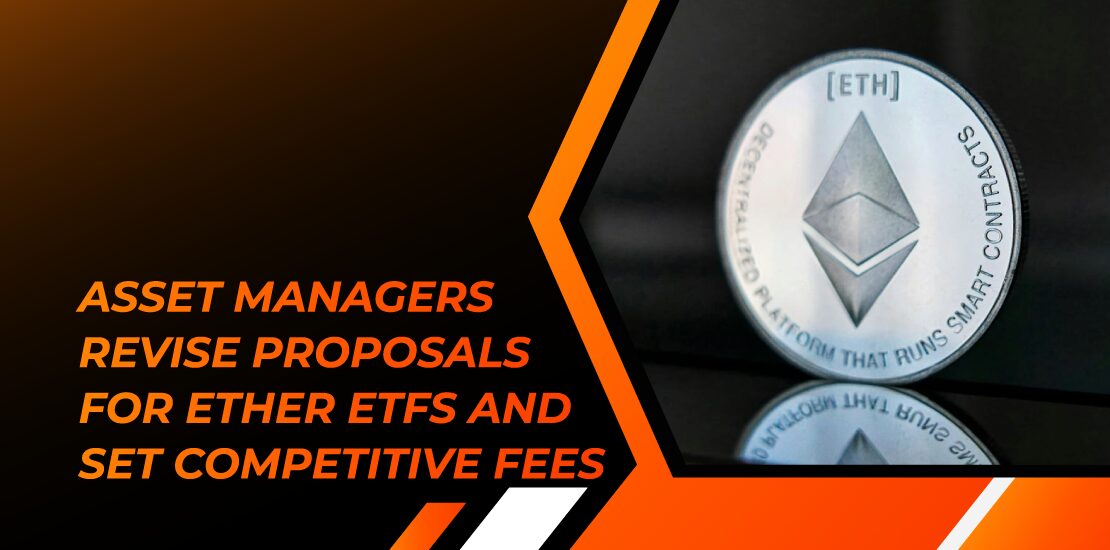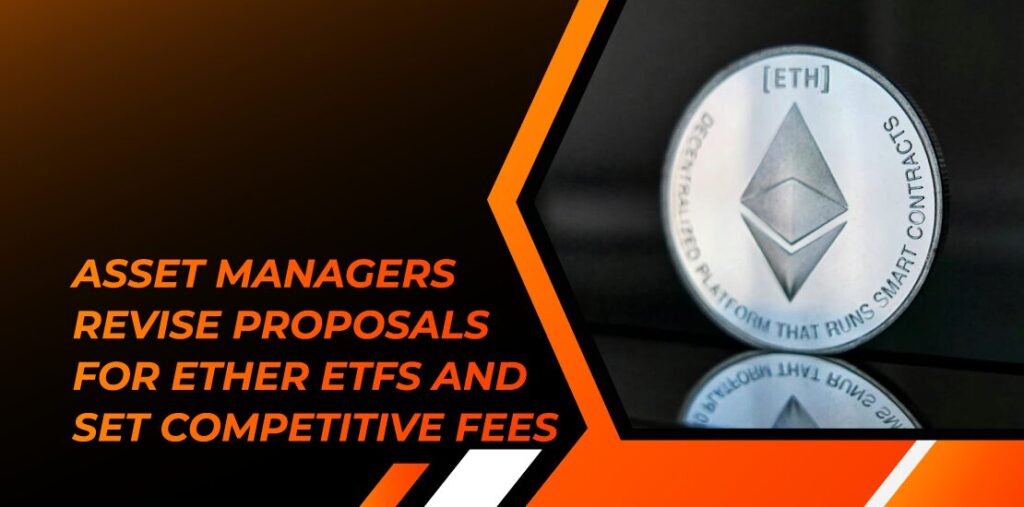- June 23, 2024
- Posted by: cryptodisplayio@gmail.com
- Category:


Several leading asset managers have submitted revised proposals for Ethereum exchange-traded funds (ETFs) to the United States Securities and Exchange Commission (SEC). These updates from VanEck, BlackRock, Grayscale, Invesco Galaxy Digital, and Fidelity aim to provide detailed information on their respective Ethereum funds. Bloomberg analyst Eric Balchunas highlighted these developments in a recent post on X.
VanEck’s filing disclosed a management fee of 0.20% for its Ethereum fund, which aligns closely with Franklin Templeton’s fee of 0.19%. This competitive pricing strategy is significant, as it may influence other major players in the market. BlackRock, which has yet to announce the fee structure for its iShares Ethereum Trust (ETHA), is now under pressure to keep its fees below 0.30%, according to Balchunas. The competitive fee structures are crucial, as they can attract more investors by offering cost-effective investment options.
The approval of the S-1 registration statement is one of the final steps before these ETFs can debut on Wall Street exchanges. Balchunas predicts that the funds will launch in the first week of July, just before the U.S. Independence Day holiday. This timeline indicates that investors might soon have more accessible ways to invest in Ethereum through these regulated financial products.
In May, the SEC approved a rule change allowing major asset managers, including VanEck, BlackRock, Fidelity, Grayscale, Franklin Templeton, ARK 21Shares, Invesco Galaxy, and Bitwise, to list and trade eight-spot Ether ETFs. This approval is a significant milestone in the cryptocurrency investment landscape, opening the door for more regulated crypto investment options.
Fidelity’s updated filing revealed that FMR Capital, an affiliate, has seeded the fund with $4.7 million at a price of $38 per share. This seeding shows Fidelity’s commitment to the fund and provides an initial valuation benchmark. Bitwise also updated its ETF proposal on June 19, indicating a potential $100 million investment from Pantera Capital upon the ETF’s trading launch, which underscores the strong institutional interest in Ethereum.
In addition to these filings, Hashdex is seeking regulatory approval for a new ETF that combines spot Bitcoin and Ether. This approach contrasts with their previous plans to launch an ETF solely dedicated to Ether, suggesting a strategy to appeal to investors interested in a diversified crypto portfolio. This move highlights the evolving strategies of asset managers to cater to the growing demand for diversified and regulated crypto investment products.
Bloomberg ETF analyst James Seyffart believes that the approval of spot Ethereum ETFs was influenced by political decisions rather than purely financial considerations. In a recent interview, Seyffart suggested that the political climate, including actions by the Biden administration and responses from the crypto community, played a significant role in the approval process. This perspective indicates that regulatory and political landscapes are critical factors in the approval and success of crypto ETFs.
Beyond Ethereum, the approval of other crypto ETFs, including Solana, is unlikely without significant regulatory changes, according to Seyffart. He noted that a regulated market is needed to monitor these assets for fraud and manipulation, which is a hurdle for new crypto ETFs. Conversely, crypto investor and trader Brian Kelly suggested that Solana could be the next cryptocurrency to have a spot ETF in the United States. On CNBC’s ‘Fast Money’, Kelly, founder and CEO of the BKCM Digital Asset Fund, speculated that Solana could join Bitcoin and Ethereum as the major cryptocurrencies for this cycle. His speculation points to the growing interest in diversifying crypto ETF offerings beyond the top two cryptocurrencies.
Meanwhile, Bitwise has launched its first Ether ETF commercial. The 39-second clip, which highlights the advantages of Ethereum, can also be minted on the Ethereum blockchain. This marketing effort underscores the importance of promoting these new financial products to attract a broader investor base. The ability to mint the commercial on the Ethereum blockchain also showcases the practical applications of the technology behind the investment.
The recent filings and updates from major asset managers reflect a significant step forward in the adoption and regulation of Ethereum ETFs. The competitive fee structures, anticipated launch timelines, and strategic moves by asset managers indicate growing institutional confidence in Ethereum. Additionally, the potential for new crypto ETFs, including those for Solana, highlights the evolving landscape of cryptocurrency investments. As regulatory and political factors continue to play a crucial role, the market is poised for further developments in the crypto ETF space.



